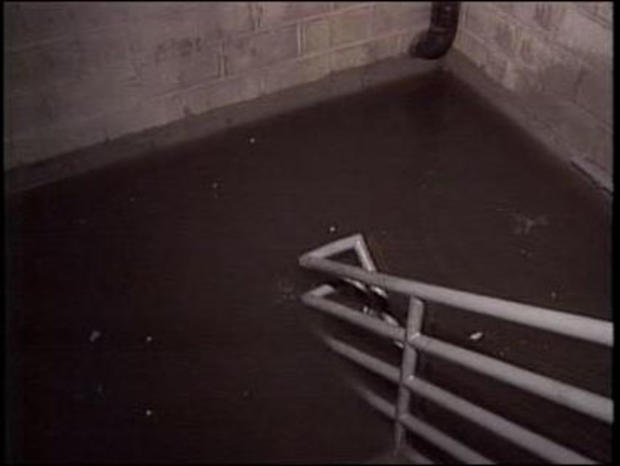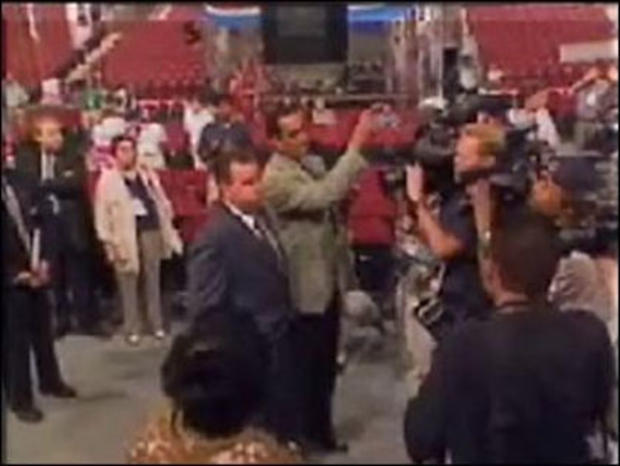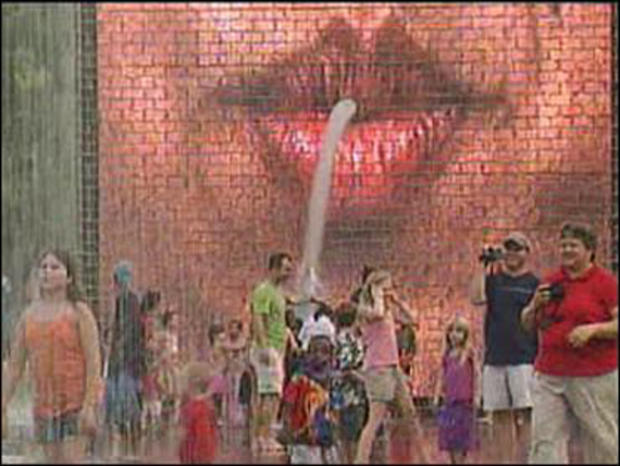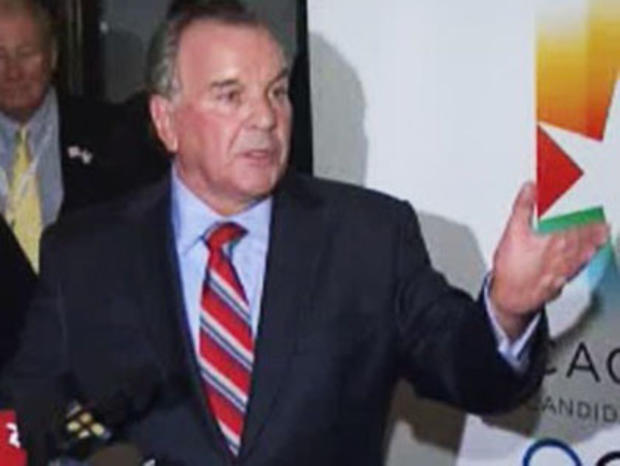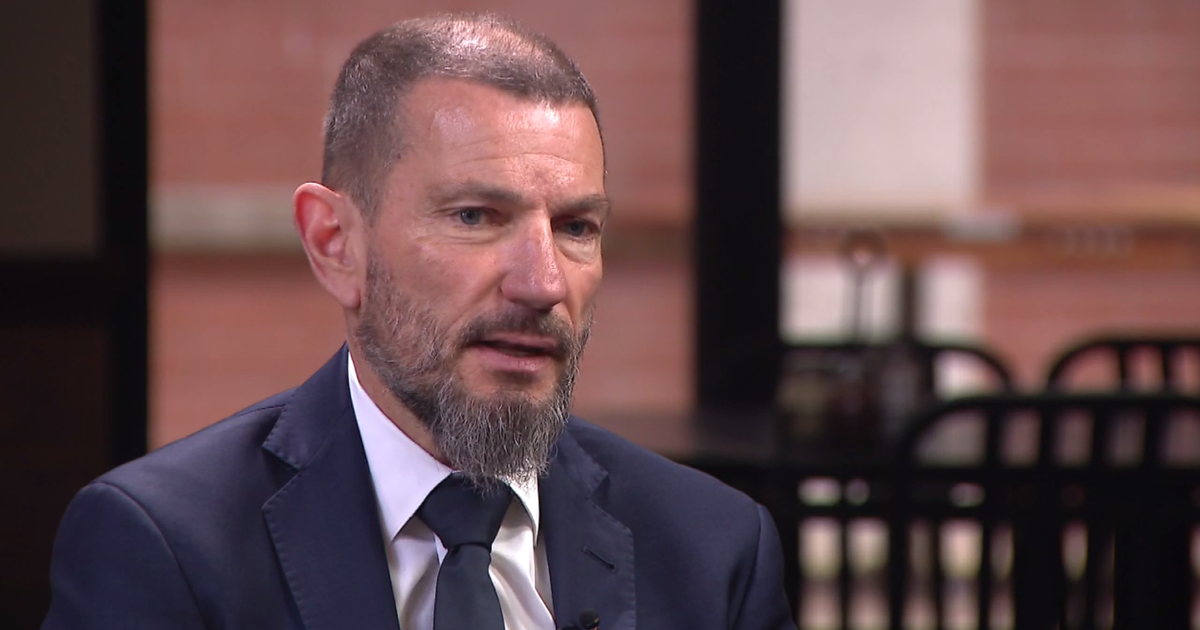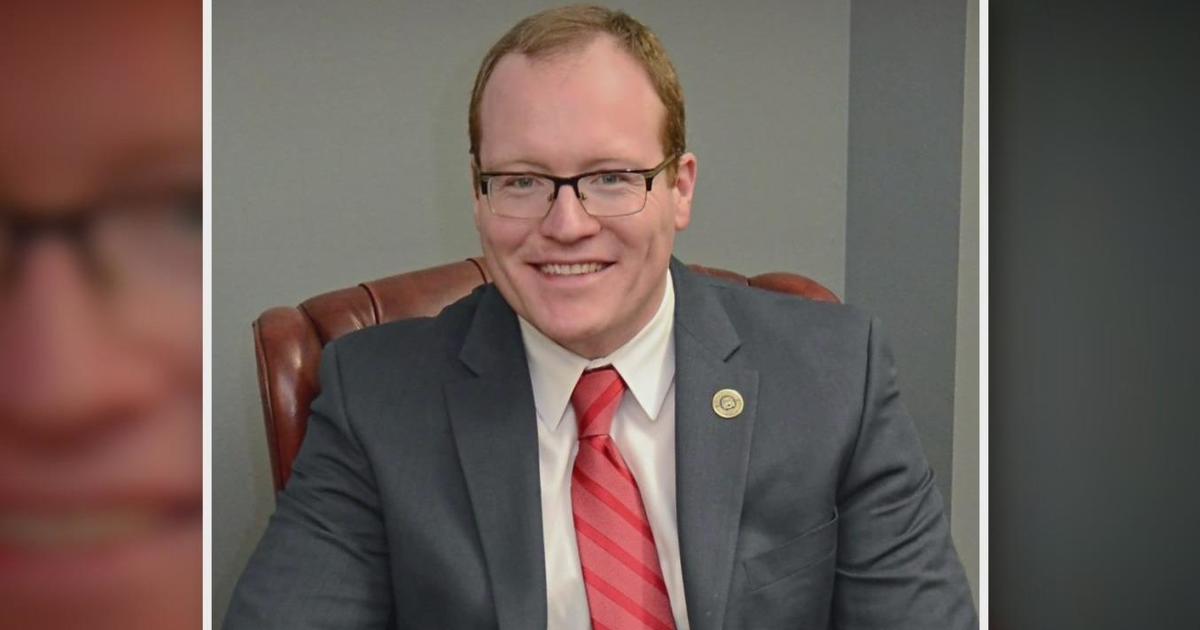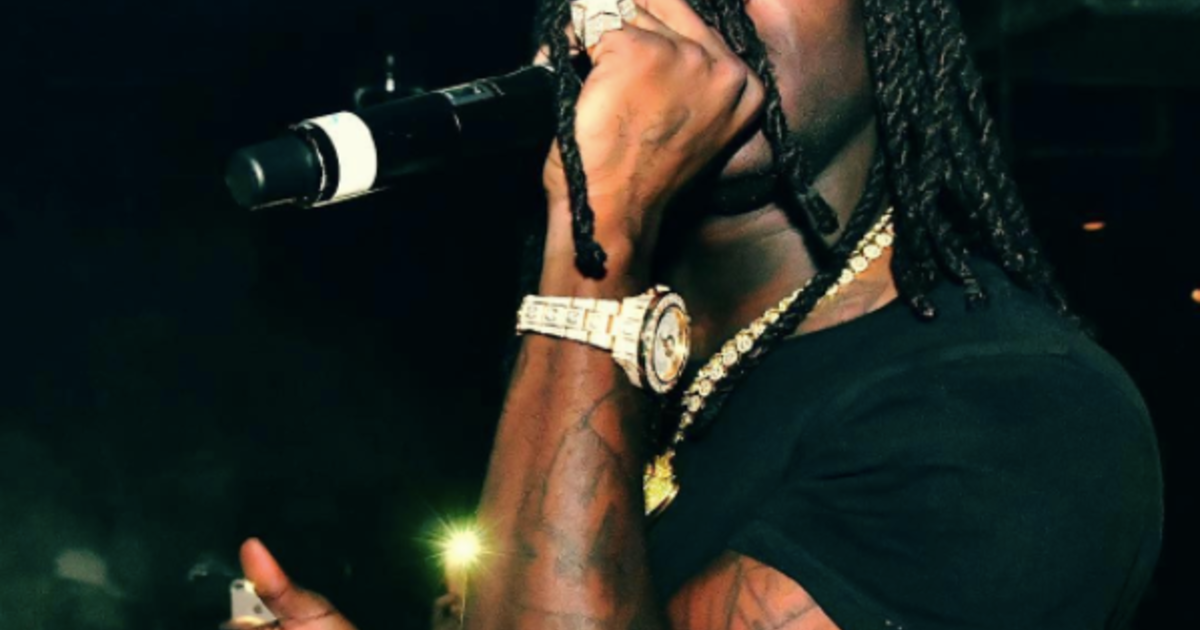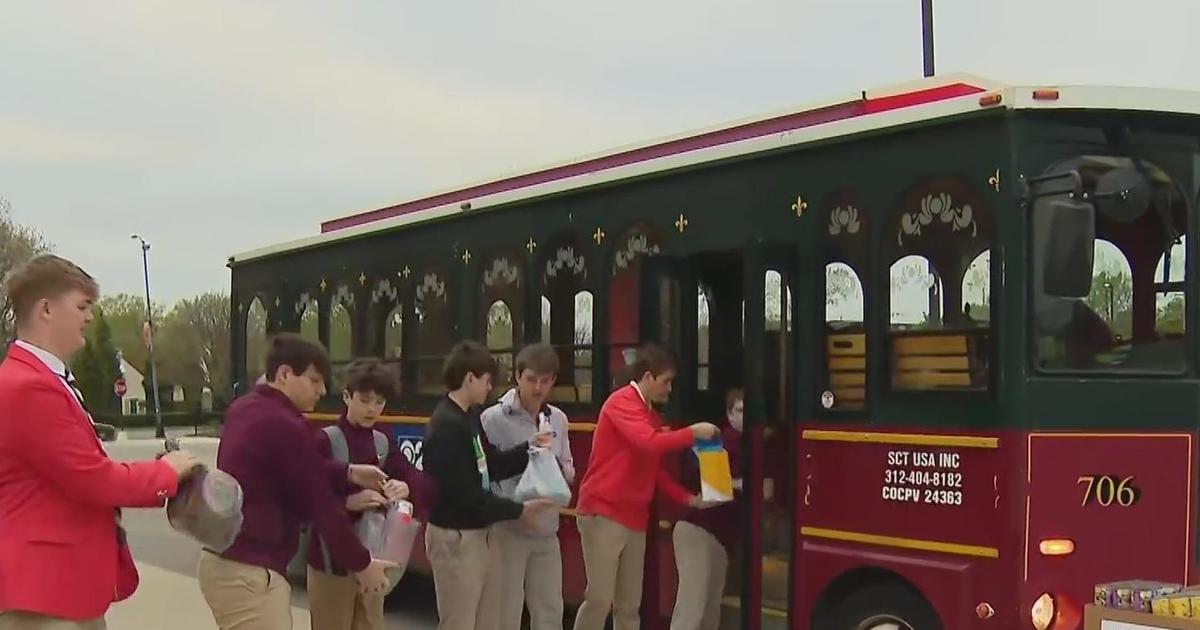10 Memorable Moments Of Mayor Daley's Reign
CHICAGO (CBS) -- Mayor Richard M. Daley has been leading the City of Chicago for 22 years, and a generation of Chicagoans has known no other mayor.
Here is a quick look back at some of the memorable moments of his years in office.
LISTEN: Mayor Daley Memorable Moments, Steve Grzanich Reports
Podcast
LISTEN: More Mayor Daley Memorable Moments, Steve Grzanich Reports
Podcast
RELATED:
GREAT QUOTES FROM MAYOR DALEY
April 4, 1989: Daley Becomes Mayor: Mayor Daley won a special election to finish the unexpired term of the late Mayor Harold Washington, who had died about a year and a half earlier. He defeated Acting Mayor Eugene Sawyer in the Democratic primary, and went on to defeat Republican Edward Vrdolyak and Harold Washington Party candidate Timothy Evans in the general election.
Daley took office on April 24, 1989, in an inauguration ceremony at Orchestra Hall – now known to as Symphony Center. In his address, he promised to take on the city's issues with the same "strength, leadership and commitment" shown by the later Mayor Washington and by his own father, the late Mayor Richard J. Daley.
"I begin this season filled with hope for the future, and dreams of victories we can win with a new spirit of teamwork and cooperation," Daley said in his inaugural address. "And as we enter this new season, it's time to leave behind old setbacks, disappointments and battles. Because in the campaign for a better Chicago, we're all allies."
LISTEN: Mayor Daley's Inaugural Oath
Podcast
Feb. 20, 1992: Plans Announced For Third Airport: On this date, Mayor Daley signed a deal with Gov. Jim Edgar for a new Chicago airport on the city's Southeast Side. Daley had proposed the airport two years earlier as a means of alleviating congestion on the runways at O'Hare International Airport.
He said it would revitalize the South Side, create 235,000 jobs and pump $15.6 billion in economic benefits into the area. But the airport was also set to wipe the entire city neighborhoods of Hegewisch and South Deering, the southern suburb of Burnham, and part of suburban Calumet City off the map.
Had the plan gone ahead, the first plane would have flown out of the Lake Calumet Airport about eight years ago. But as it happened, Daley ran into a roadblock when State Senate Republican Leader James "Pate" Philip opposed the legislative bill that would have funded the airport. By July 1992, plans for the airport had been called off.
After the plans folded for the Lake Calumet Airport, Mayor Daley's attention turned toward plans to expand O'Hare, a process that remains in progress today.
April 13, 1992: A Flood Submerges The Loop: When the infamous 1992 flood swamped downtown, Mayor Daley had to step up to the plate for the first major disaster in the city during his tenure. Wood pilings punctured the ceiling of an underground tunnel under the Chicago River, sending 250 million gallons of water into an antiquated web of freight tunnels under the Loop and flooding sub-basements of buildings across downtown.
Mayor Daley was in front of the television cameras multiple times as crews worked to plug the sinkhole in the river, and initially got annoyed when asked who was to blame.
"We are not going to get into who is to blame, because we don't know as yet. That's why," Daley said. "This is a very serious problem. Don't make it funny."
But later, he said some city department heads had known there was a serious problem in the river at Kinzie Street a week and a half earlier and "each and every one of those persons who had information will be accountable to me and to the City of Chicago." Within a short time, eight city officials were asked to resign or retire.
In the ensuing years, Mayor Daley was variously praised and criticized for his handling of major disasters and weather events.
When hundreds of people died due to a triple-digit heat wave in July 1995, critics said Mayor Daley should have taken action earlier and declared a formal emergency, rather than just advising people to check on the elderly and others at risk (see more on that below.)
But in what remains the second biggest blizzard in Chicago history in January 1999, Mayor Daley was honored for the city's swift response, and for vowing not to keep plowing, salting and fighting the weather until the snow stopped. The city had learned its lessons from a snowstorm 20 years earlier, in which the city faltered and Mayor Michael Bilandic ended up booted from office. A blizzard also marked the final months of Daley's term in office, in February 2011.
July 1, 1995: Mayor Daley Takes Over The School System: Following decades of criticism directed at the Chicago Public Schools, including a 1987 comment in which U.S. Secretary of Education William Bennett called them "the worst in the nation," a new structure went into place under which Mayor Daley had direct control of the school system. The Illinois General Assembly had passed legislation giving control to the mayor earlier in the year.
The system is reorganized so it is led by a chief executive officer and a school board appointed by the mayor, rather than a superintendent appointed by a Board of Education. Paul Vallas became the first chief executive officer, and sought to improve student performance through a rigorous academic program focused on test-taking. Vallas was succeeded by future U.S. Education Secretary Arne Duncan in 2001.
In recent months, the Chicago Teachers Union has been calling for a move to an elected school board.
July 17, 1995: Heat Wave Blamed For 739 Deaths: On July 13, 1995, the mercury hit 106 degrees, breaking the record high ever recorded in Chicago. Busloads of children were overcome by swelling temperatures, widespread power outages left thousands in the dark, and water pressure dropped due to illegally-opened fire hydrants.
But over the coming several days, it became clear that the problems were far more serious, as the heat wave became a full-fledged killer. By Saturday, July 15, the Cook County Morgue was overflowing, and refrigerator trucks had to be brought in store the dead. Altogether, the heat wave was blamed for 739 deaths.
Initially, Mayor Daley simply encouraged family members and neighbors to check on the elderly and others at risk, saying: "We have to get more family members and neighbors visiting senior citizens. That was a must." But City Hall soon came under fire for failing to declare a formal health emergency, or use a catastrophe plan that was already in place.
"Thousands of poor, old, isolated, and sick people, especially those concentrated in the city's segregated African-American ghettos… were effectively trapped in lethal conditions," sociologist Eric Klinenberg wrote in his 2002 book, Heat Wave: A Social Autopsy of Disaster in Chicago,. "Neither federal nor local agencies did much to assist them. Instead, city patrols cracked down on young people who opened fire hydrants."
In response, Mayor Daley unveiled a three-step early warning plan, which included a new system based on the watch and warning system used by the National Weather Service. Under the new plan, a heat watch would be called when the heat index was expected to be 90 degrees or higher. If the heat index was expected at 90 or higher for three consecutive days as it was that week, a heat warning would be called. And if the heat index was predicted at 105 or more – that week it was 115 – a heat emergency was declared.
Aug. 24, 1996: The Democratic National Convention Returns: Mayor Daley brought the Democratic National Convention back to Chicago for the first time since a still-infamous event 28 years earlier.
The city spent more than $150 million to host the event, and improve the struggling area around the two-year-old United Center. The mayor welcomed heads of delegations from all 50 states to the United Center, and basked in the role of host and chief Chicago booster, helped at the time by the World Champion Bulls.
President Bill Clinton was nominated for a second term at the convention. While Vice President Al Gore showered ringing praise for Daley.
The last Democratic National Convention in Chicago, in 1968, was remembered for widespread police brutality against protesters and others at the event, an angry and forbidding tone emanating from the senior Mayor Daley, a general atmosphere of chaos.
But at the 1996 event, everyone was dancing to the "Macarena" on the floor of the United Center. And the beautification in the area is still very much in place.
March 31, 2003: Meigs Field Bulldozed: After fighting with state lawmakers for several years in an effort to close Meigs Field, Mayor Daley sent private bulldozer crews to tear giant X's into the lakefront airport's single runway in the dead of night.
At the time, which was only about a year and a half after the Sept. 11, 2001, attacks, Mayor Daley said the threat of terrorism from the presence of a lakefront airport was enough of a reason to close it. But the move drew widespread fury, particularly from the owners of 16 planes that up stranded at the airport.
The Federal Aviation Administration fined the city $33,000 for the move.
But Mayor Daley has always defended the decision. In a 2009 interview with former CBS 2 Political Editor Mike Flannery, Daley said the airport was a "losing proposition."
"You couldn't expand the airport. And so, in the long run, it was all part of the (Daniel) Burnham Plan originally, is to build islands. And that was part of the islands, the peninsula, for open space," he said.
Northerly Island, where Meigs was formerly located, is now used as a park and concert venue. The old Meigs Field terminal became a bird hospital.
July 16, 2004: Millennium Park Opens: Mayor Daley led a ceremony on this day to open the long-awaited Millennium Park, which is widely regarded as one of his crowning achievements.
Legend has it that while Daley was at his dentist's office on Michigan Avenue, he looked down at the sunken railroad tracks in the northwest corner of Grand Park, and began thinking of plans for something better.
The park was supposed to open in 2000, hence the "Millennium" name. But its opening was delayed by four years due to major cost overruns and construction delays.
But once the park did open, it quickly became one of the most popular spots in downtown Chicago, with its new Pritzker concert pavilion, the Crown Fountain, and the Cloud Gate or "Bean" sculpture – which in just seven years has become a Chicago icon.
Dec. 2, 2008: Chicago's Parking Meters Go Under Lease: In what remains one of his most controversial decisions, the mayor announced on this date that the city had entered into a $1.157 billion, 75-year contract with a private firm operated by Morgan Stanley to take over the city's parking meters.
As a result of the decision, parking meter rates jumped across the city with built-in increases for the next five years – by 2013, it will cost $6.50 per hour, or 26 quarters, to park in the Loop. Free Sunday and holiday parking were abolished, and the traditional meters were replaced with pay boxes that many complained would often malfunction.
The City Council approved the deal, although some aldermen later said they didn't have a chance to give it a full analysis. Meanwhile, the city Inspector General's office indicated the city could have reaped $1 billion more for the meters than it got in the deal.
But Mayor Daley defended the deal saying it prevented a tax increase and service cuts.
October 2, 2009: Chicago's Olympic Bid Fails: Mayor Daley spent nearly four years traveling the world and hosting delegates in hopes of landing the 2016 Summer Olympics for Chicago. The U.S. Olympic Committee selected Chicago as the American contender for the games in April 2007, and plans were unveiled to build a new Olympic stadium in Washington Park on the South Side.
By 2009, Chicago was up against Tokyo, Madrid and Rio de Janeiro for the games. Mayor Daley and Chicago 2016 chairman Pat Ryan wined and dined Olympic delegates, and enlisted Oprah Winfrey to help pitch the bid.
When it came time to make the final pitch in Copenhagen, President Barack Obama made a special trip to try to convince delegates Chicago should host the 2016 Games.
But that day, as an exuberant crowd of Chicagoans gathered in Daley Plaza, International Olympic Committee chairman Jacques Rogge announced, "The City of Chicago, having obtained the least number of votes, will not participate in the next round." The city had been eliminated from contention in the first round, and the mood in the plaza quickly deflated.
After the loss, Daley said he was "shocked," and questions began to mount about whether he would run again in 2011. In September of last year, he announced that he would retire.
Compiled by Adam Harrington, cbschicago.com
